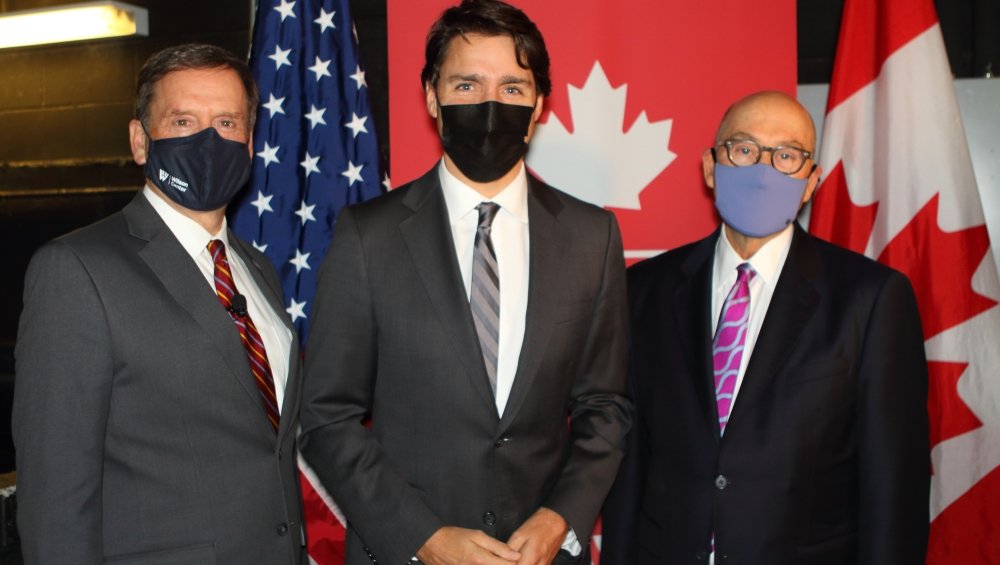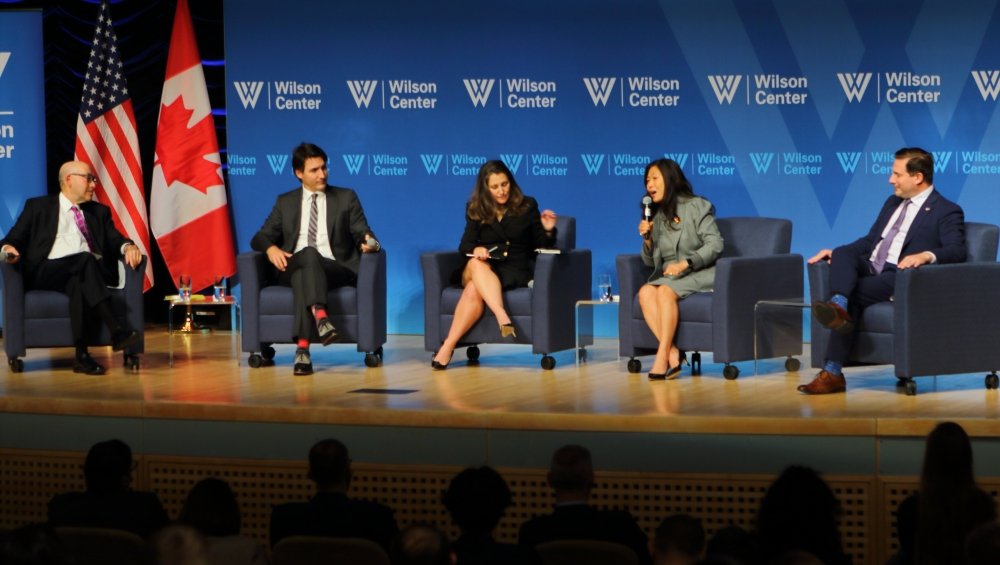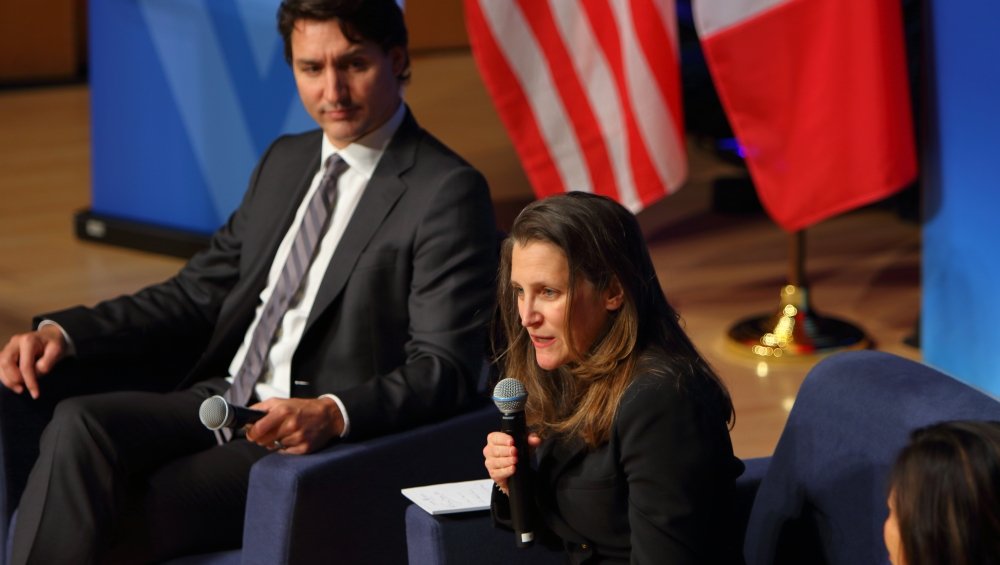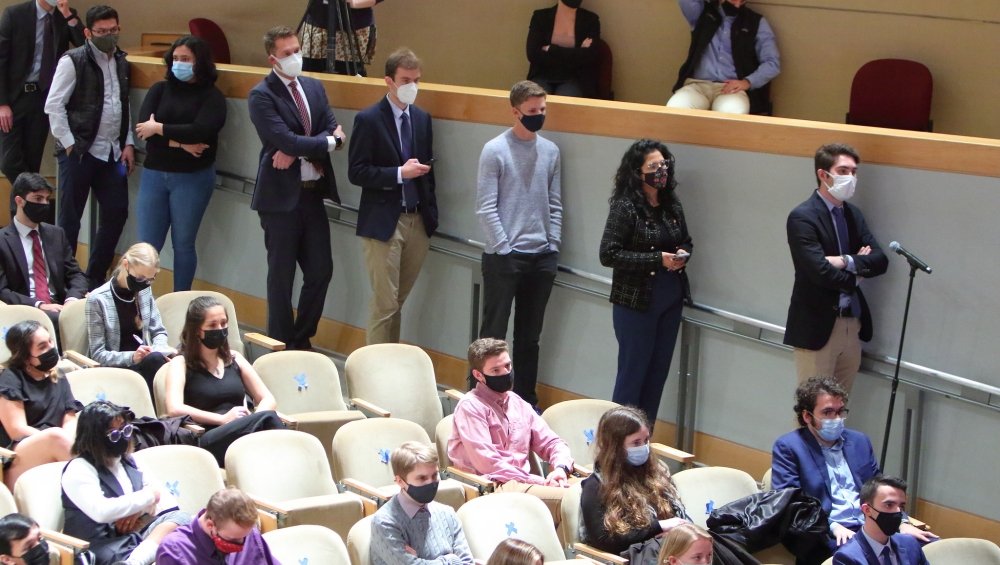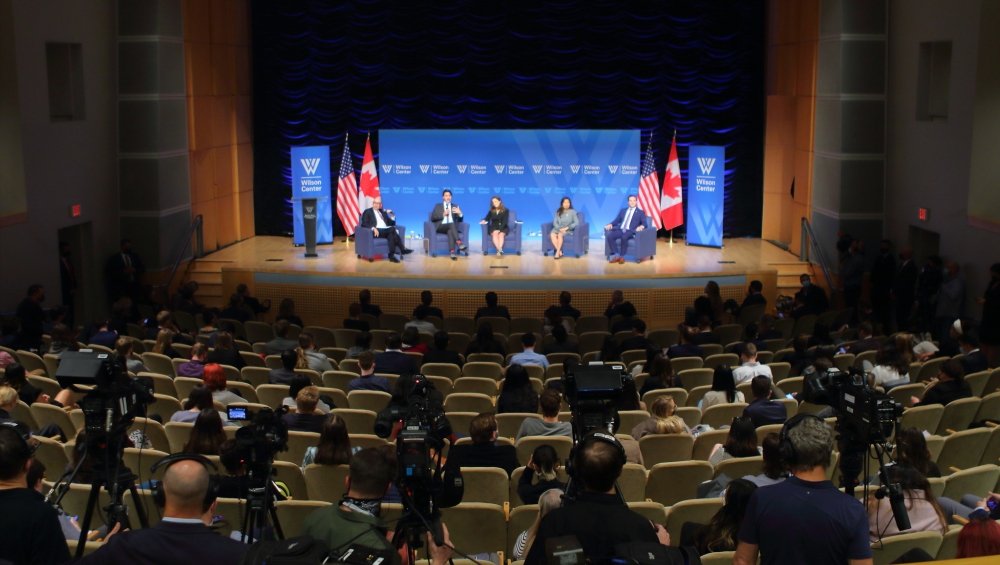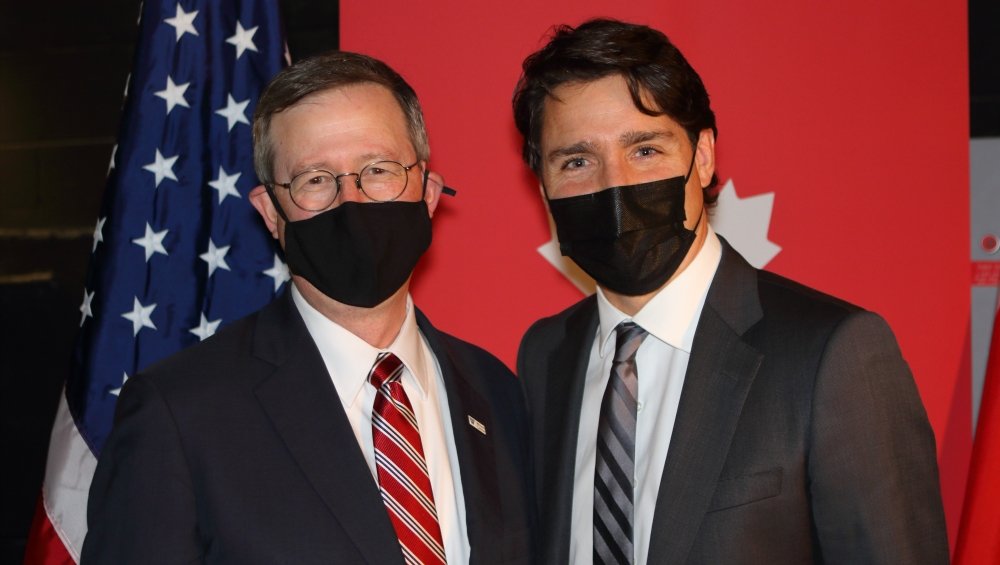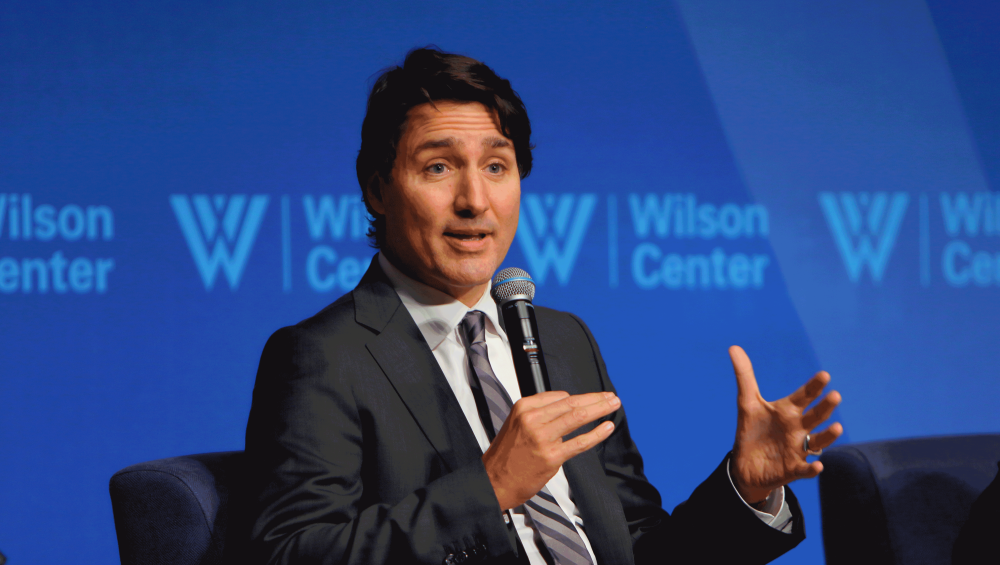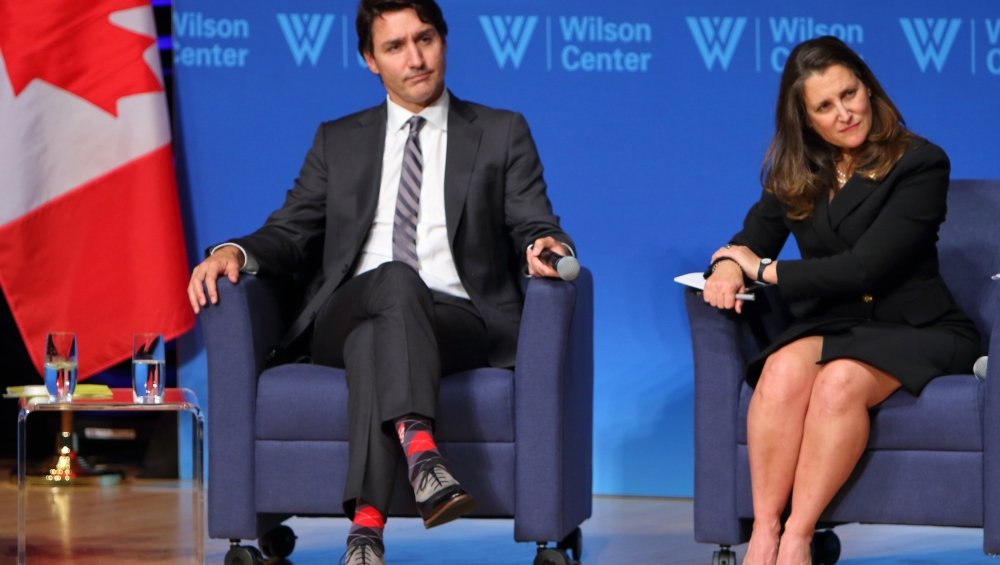A Conversation with Prime Minister Justin Trudeau
The Wilson Center and the Embassy of Canada in Washington, DC hosted a conversation with Canadian Prime Minister Justin Trudeau on Wednesday, November 17.
The Prime Minister's appearance preceded his participation in the 2021 North American Leaders' Summit on November 18th, where he met with U.S. President Joe Biden and Mexican President Andrés Manuel López Obrador.
Key Takeaways
- With the backdrop of severe weather in British Columbia and the conclusion of the 2021 United Nations Climate Change Conference (COP26), the Prime Minister spoke about efforts to position Canada as a climate leader through a carbon tax and praised renewed American commitment to fighting climate change.
- Prime Minister Trudeau emphasized the opportunity for greater U.S.-Canadian cooperation in creating resilient supply chains, specifically for raw critical minerals used in the production of electric vehicles. The Prime Minister cautioned against the Biden administration's electric vehicle rebate, stating that it "could have a real negative impact on the [USMCA] auto pact".
- Prime Minister Trudeau praised the international community, including the United States, for rallying against the detention of Michael Spavor and Michael Kovrig in China. He highlighted the need for international cooperation to counter China saying that “no country, not even the United States with all its economic strength and might, is able to counter all on its own, the strength and might of China.”
Selected Quotes
Ambassador Mark Green
“Ladies and gentlemen, Canada and the U.S. are in the vanguard of a new kind of international relationship. Together we are forging some of the world’s most efficient supply chains. The U.S. faces a particularly troubling scenario when it comes to the supply chain for critical minerals. Fortunately for the free world, Canada is rich in several of these critical minerals. In 2020, our two countries agreed to a joint action plan on critical minerals collaboration to see that these resources are more effectively and more efficiently developed. The Wilson Center has established both a working group on critical mineral supply chains and a task force on public health at the U.S.-Canada border. This latter group aims to take stock of the economic, social, and health impacts of border restrictions. It’s examining how technology and data sharing and the adoption of a risk management paradigm could mitigate those costs while improving the effectiveness and security of our land, sea, and air borders.
In 2020, NAFTA was replaced by the United States-Mexico-Canada Agreement, or USMCA. The USMCA liberalizes digital trade, strengthens intellectual property protections, and establishes more than 26 separate committees to coordinate the implementation of the agreement by the governments involved. Our USMCA working group, which includes government representatives and other stakeholders, is closely tracking the implementation of USMCA. We are excited that President Biden and Prime Minister Trudeau have launched a road map to a renewed U.S.-Canada partnership, with commitments to work together on urgent challenges from rebuilding our infrastructure, to fighting COVID. Our unique Canada Institute, Wilson is closely following the progress of the road map and other important matters between our two great countries. We are looking forward to hearing more about these initiatives during today’s discussion.”
Prime Minister Justin Trudeau
“So much of our new technologies, whether it is batteries for electric vehicles or ingredients in high-tech manufacturing processes, rely on a certain number of critical and rare earth minerals. There are about 13 critical minerals that have been identified for various manufacturing processes that Canada, has that the U.S. does not have nearly as much of, and that we are happy to provide in a reliable trade as reliable source for the kind of growth we have.
Right now, many of those critical minerals have been cornered by certain parts of the world that are somewhat less reliable these days in how they are willing and able to rely to provide reliable supply chains to the United States to the Western world and recognizing that, yes, as we develop critical mineral capacity for things like lithium, and cobalt, and nickel, and other things that are so essential in technologies of the present and the future, we can’t compete with some countries when it comes, you know, low cost of production because they don’t care about environmental standards or because they don’t have the same labor standards and requirements that we have, it’s going to be more expensive to mine those and process them in Canada than it would be in some other countries.
But, that is a trade-off that I think people are waking up to, particularly post-pandemic, it is probably more than worth it if we can have reliable sources from, you know, best friends like Canada and Australia, in minerals that are so necessary for the future of our economies. And that’s sort of the approach we are taking on this, that we are going to need to draw in global investment and secure partnerships to do this, but there’s an opportunity here to create the kind of resilience in our essential supply chains that the pandemic has shown us aren’t necessarily the case right now.”
“Well, I think first of all there’s always more to do, and we have to be extremely ambitious. Not just ambitious on our way to COP, we have to be ambitious on our way out of COP, and in how we approach next year, and I think one of the key things is continuing to scale up our ambition to meet the scale of the challenge we are facing is not something we are never going to finish doing, we have to keep doing it.
But we have to position it in ways that bring citizens and communities and our economy along, and that's where of the things that we did when I first got elected in 2015, was we brought in a broad-based price on pollution in our country. It is no longer free to pollute anywhere in Canada, and there have been lots of talks about carbon tax and carbon pricing, and you know, some countries have moved forward with a little bit. But, we have a price on pollution it’s going to rise to $170 a ton by 2030, which makes it one of the strongest and broad based prices in the world, and the way we did it is we are actually returning more money to the average family than it costs them, on average, for the carbon price.
So it's a way of actually bringing in a price on pollution that if people don’t change their behaviors, they end up slightly better off, if they actually change their behaviors to, you know, buy a more fuel-efficient car or fix their windows, or upgrade their furnace, they actually save much more money because the money that we return to them is a larger amount. So, that was the trick around carbon pricing that allowed us to bring in something that, yes, the conservatives in Canada fought us all the way to the Supreme Court saying that we couldn’t do this, but we ended up not just winning at the Supreme Court, we won two elections where the votes were strongly for our party and other parties that supported carbon pricing, and that’s sort of a settled question in Canada now.
Now, the challenge is to bring in carbon pricing around the world, because it’s not fair that Canadian industries for example are producing, to take an example some of the cleanest aluminum in the world, that are competing against people who are using coal fired energy plants to produce aluminum that can offer a lower price for their aluminum than we can even though we are protecting the planet with ours. So we have to look at making sure that we are all working on the same competitive playing field and part of that is the conversations I’ve been having with people at the IMF, the OECD, the World Bank, the WTO, and the European Union and others on how we move forward with a minimum standard on pricing pollution around the world, which I think is the next big step we should take to make sure that it is fair, and that we are rewarding those companies, those consumers, those countries, that are doing the right thing on reducing pollution and pricing it that it doesn’t happen as much. ”
The Honourable Chrystia Freeland
“We really believe in child care as a great way to support middle class families, to support affordability for middle-class families, and to help resolve the labor shortage, which is an issue in both of our economies, and actually the Prime Minister and I were together in Edmonton on Monday where the Prime Minister announced our ninth deal with a Canadian province and territory. We now have early learning and child care deals that cover sixty percent of children in Canada. Within five years, day care in Canada will be ten dollars a day, and for us that is a very very powerful economic policy. We know it’s something the Biden administration is focused on too, and I think we look forward to kind of sharing experiences.”
David Jacobson
“There are about two million dollars worth of goods and services that cross our two borders, North and South Border, every minute. The United States trades more with its two neighbors than it does with the EU and the UK combined, almost twice as much as our trade with China. The United States is by far the largest trading partner with both Canada and Mexico, and the estimates range probably from twelve million, I’ve heard, up to eighteen million jobs that are dependent on the trade between our two countries.”
The Honourable Mary Ng
“Last evening I was meeting with the ASEAN ministers in the region, and we have agreed to proceed with a free trade agreement with the ASEAN region. So building on the CPTPP to create greater access for Canadian businesses, and I’m the minister of both small businesses and international trade, and why is that important as well for our trade agreements, particularly for those that we just decided to work on with the ASEAN? It’s because in addition to provisions for high standards on the environment and on labor, also, chapters that provide greater access to those markets for small and medium-sized businesses, also for women, and gender, and those businesses represented by typically underrepresented businesses because they are small. So, this is very much an opportunity to grow our economy, and what are we really talking about?
ASEAN is the third largest consumer market in the world, in addition to the two-thirds access right now through the many free trade agreements that Canada has, it really is also building out another 600 million customers in that region. So as a Pacific nation, it is really important for us to continue to pursue those opportunities and for us, it’s about people, it’s about exporters, and it’s about being able to create opportunities for them to grow and I can’t think of a more important time than right now as we are building out of COVID-19 and recovering our economies, and this is an area where we absolutely are very sympatical with the United States on.”
The Honourable Marco E.L. Mendicino
“I do think there is a way to bridge the two concepts you already touched on. One is the reality that we are seeing more hate and racism in a variety of forms both in person, in schools, on campuses, in the workplace, in our communities, and increasingly online, and that is something that our government is very much grasped with as we come up with a framework to work with big tech and other corporate citizens to really root out the content which we know represents a clear and present danger to those simply by virtue of who they are.
But I will say on the immigration front, which was something that I had the honor of shepherding for the last two years, I’m very proud of the fact that this year we are going to land 401,000 new permanent residents in Canada, which is a little more than one percent of our total domestic population. Now, why is that important? Because of the labor shortages that we’re experiencing, and this is an area of real strategic collaboration, I think with the United States at the border, and something that we hope to address.
I will also just say, in conclusion, that human rights and what we are seeing in Afghanistan right now and Canada’s role in extracting those who were targeted by the Taliban is something that we are very proud that we did in conjunction with the United States. Secretary Blinken, Secretary Marcus, the Biden Administration, worked very closely with us to help evacuate many Afghans who supported the Canadian mission during those years that we were there to try and build a brighter future for Afghans, and now those Afghans who we’ve been able to repatriate to Canada have the chance at a better life, and I think all of this is good in addressing the great diversity that we are proud of. So, I think it's a fantastic question, thank you for posing it.”
Speaker
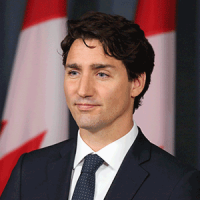
Introduction

Moderator

Former U.S. Ambassador to Canada; Former Vice Chair, BMO Financial Group
Panelists


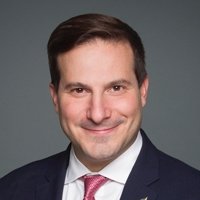
Hosted By

Canada Institute
The mission of the Wilson Center's Canada Institute is to raise the level of knowledge of Canada in the United States, particularly within the Washington, DC policy community. Research projects, initiatives, podcasts, and publications cover contemporary Canada, US-Canadian relations, North American political economy, and Canada's global role as it intersects with US national interests. Read more


